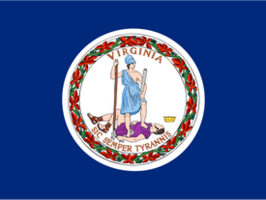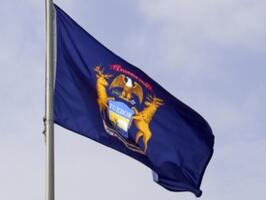North Carolina Senate: Tillis (R) 47%, Hagan (D) 40%
Incumbent Democrat Kay Hagan trails her two leading Republican challengers in Rasmussen Reports’ first look at the 2014 U.S. Senate race in North Carolina.
A new statewide survey of Likely North Carolina Voters shows Thom Tillis, the Republican speaker of the state House of Representatives, leading Hagan by seven points - 47% to 40%. Three percent (3%) like some other candidate, and 10% are undecided. (To see survey question wording, click here.)
Tea Party activist Dr. Greg Brannon leads Hagan by four - 43% to 39%. Four percent (4%) prefer some other candidate, and 14% are undecided.
Hagan was elected to her first term in the Senate in 2008 with 53% of the vote but has come under increasing criticism at home for her support of the new national health care law. Republicans will hold a May 6 primary to choose their Senate nominee.
Just 38% of North Carolina voters view the health care law favorably, while 56% hold an unfavorable opinion of it. This includes 16% with a Very Favorable opinion of the law and 43% with a Very Unfavorable one. Voters in the state are more critical of the law than voters nationally.
Hagan earns overwhelming support from voters with a Very Favorable opinion of Obamacare, while both Republicans get equally impressive support from the much larger group that views the law Very Unfavorably.
Barack Obama carried North Carolina in the 2008 presidential election, but GOP nominee Mitt Romney took the state four years later. Even though Democrats held their national convention in Charlotte in 2012, the state also elected a Republican governor, Pat McCrory, that year.
Forty-nine percent (49%) of voters in the Tar Heel State approve of the job Obama is doing as president, while another 49% disapprove. This includes 31% who Strongly Approve and 42% who Strongly Disapprove, earning him a slightly better job approval rating in North Carolina than he gets nationally. Still, Hagan chose not to appear with the president during his visit to the state earlier this month.
(Want a free daily e-mail update? If it's in the news, it's in our polls). Rasmussen Reports updates are also available on Twitter or Facebook.
The survey of 500 Likely Voters in North Carolina was conducted on January 22-23, 2014 by Rasmussen Reports. The margin of sampling error is +/- 4.5 percentage points with a 95% level of confidence. Field work for all Rasmussen Reports surveys is conducted by Pulse Opinion Research, LLC. See methodology.
Thirty-six U.S. Senate seats are at stake this November. Presently, 21 of them are held by Democrats and 15 by Republicans. Democrats currently have a 53-to-45 majority over Republicans in the Senate. In addition, there are two independent senators who caucus with the Democrats. Republicans need a net gain of six seats to take control of the Senate.
Hagan, who was a state senator prior to her election to the U.S. Senate, is viewed Very Favorably by 19% of North Carolina voters and Very Unfavorably by 31%.
Eleven percent (11%) have a Very Favorable view of Tillis, while another 11% regard him Very Unfavorably. He’s an unknown to 22% of the state’s voters. For Brannon, Very Favorables are six percent (6%) and Very Unfavorables eight percent (8%). But 42% have never heard of him.
At this point in an election cycle, Rasmussen Reports considers the number of people with a strong opinion more significant than the total favorable/unfavorable numbers.
Tillis earns the support of 82% of Republicans in his matchup with Hagan. Brannon gets 78% of the GOP vote when he’s pitted against the Democratic incumbent.
Sixty-two percent (62%) of all voters in North Carolina favor a smaller government with fewer services and lower taxes to a more active one with more services and higher taxes. Twenty percent (20%) prefer a more active government instead, while 18% are undecided. This is comparable to voter attitudes nationally.
Hagan earns nearly 90% support against both GOP hopefuls among voters who want a more active government with more services and higher taxes. Tillis and Brannon get 70% and 64% support respectively from voters who want a smaller government with fewer services and lower taxes.
Only 30% of all North Carolina voters believe the federal government should require every American to buy or obtain health insurance. Fifty-four percent (54%) disagree. That’s much higher opposition to the individual mandate than is found nationally.
Sixteen percent (16%) say they or a member of their immediate family have bought health insurance through a health care exchange established by Obamacare. Thirty-four percent (34%) say their health insurance has changed as a result of the law. That’s in line with findings nationwide.
Just 36% of Tar Heel voters think it is even somewhat likely that the problems with the health care law will be fixed within the next year, with 14% who say it is Very Likely.
Fourteen percent (14%) of voters in the state rate the U.S. economy as good or excellent, while 44% describe it as poor. But 30% say their own personal finances are good or excellent, compared to 26% who say their finances are poor.
Thirty-five percent (35%) in North Carolina have a favorable impression of the Tea Party movement. Forty-one percent (41%) view the grass roots movement unfavorably. A sizable 23% are undecided. This is a more favorable view of the Tea Party than voters have nationally.
Forty-six percent (46%) approve of the governor’s job performance, while 47% disapprove. This includes 15% who Strongly Approve of the job McCrory is doing and 29% who Strongly Disapprove.
Additional information from this survey and a full demographic breakdown are available to Platinum Members only.
Please sign up for the Rasmussen Reports daily e-mail update (it’s free) or follow us on Twitter or Facebook. Let us keep you up to date with the latest public opinion news.
The survey of 500 Likely Voters in North Carolina was conducted on January 22-23, 2014 by Rasmussen Reports. The margin of sampling error is +/- 4.5 percentage points with a 95% level of confidence. Field work for all Rasmussen Reports surveys is conducted by Pulse Opinion Research, LLC. See methodology.
Rasmussen Reports is a media company specializing in the collection, publication and distribution of public opinion information.
We conduct public opinion polls on a variety of topics to inform our audience on events in the news and other topics of interest. To ensure editorial control and independence, we pay for the polls ourselves and generate revenue through the sale of subscriptions, sponsorships, and advertising. Nightly polling on politics, business and lifestyle topics provides the content to update the Rasmussen Reports web site many times each day. If it's in the news, it's in our polls. Additionally, the data drives a daily update newsletter and various media outlets across the country.
Some information, including the Rasmussen Reports daily Presidential Tracking Poll and commentaries are available for free to the general public. Subscriptions are available for $4.95 a month or 34.95 a year that provide subscribers with exclusive access to more than 20 stories per week on upcoming elections, consumer confidence, and issues that affect us all. For those who are really into the numbers, Platinum Members can review demographic crosstabs and a full history of our data.
To learn more about our methodology, click here.





